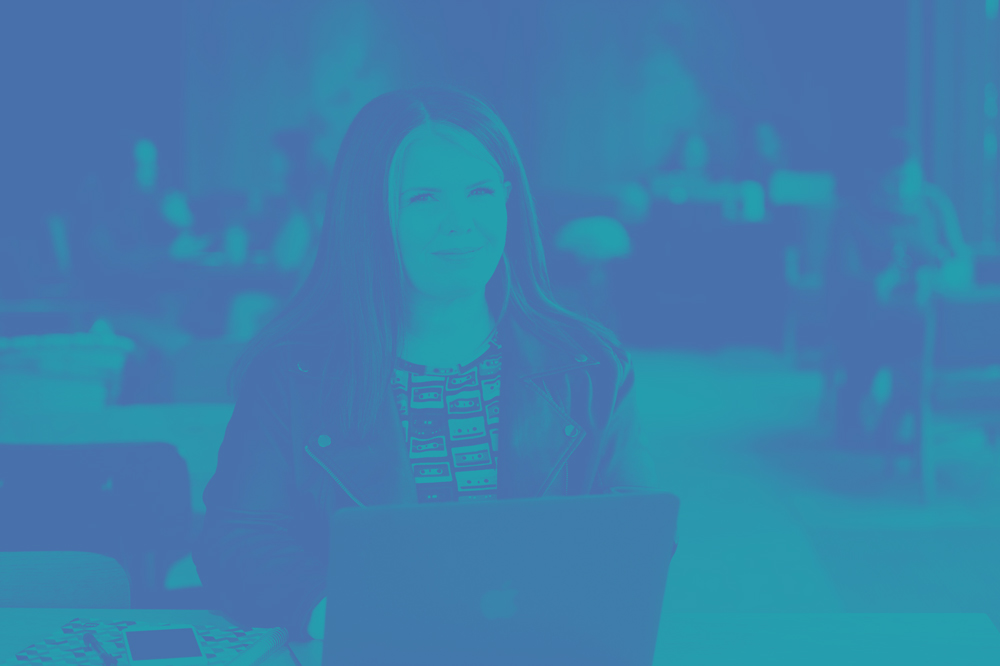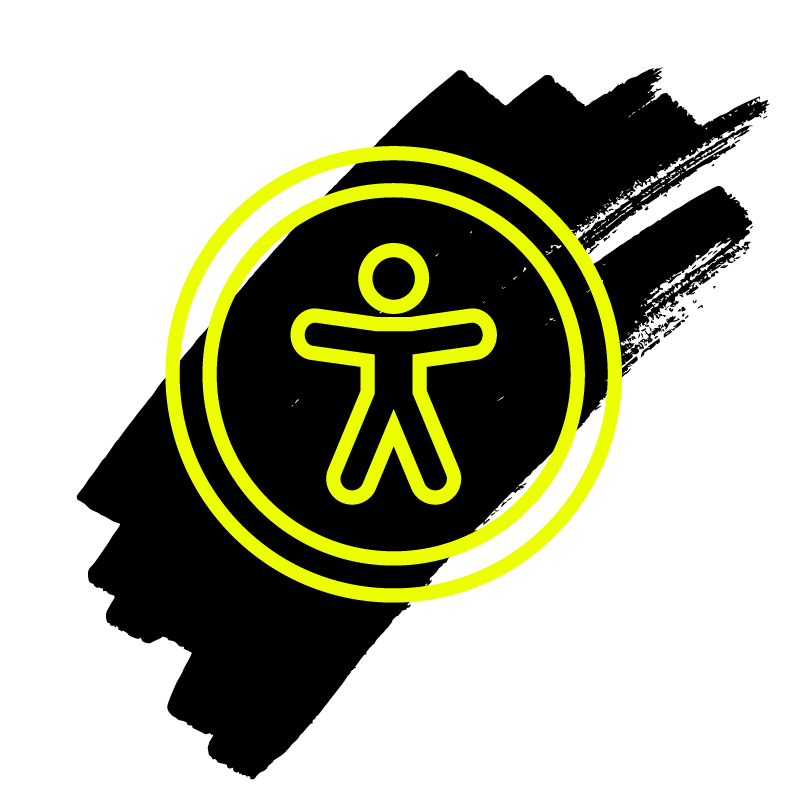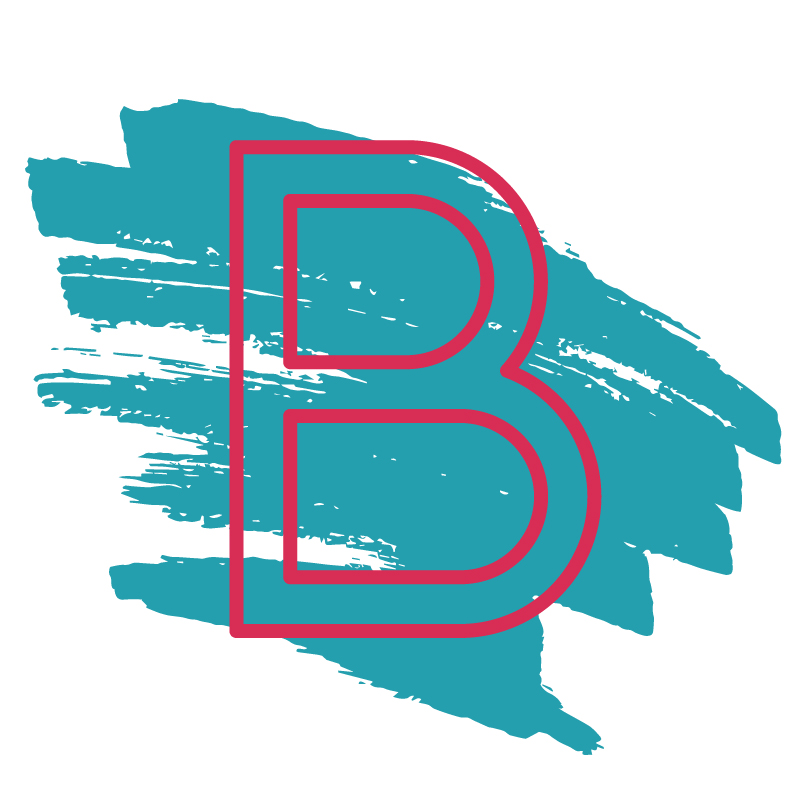Own It,

Don’t Erase It
The Importance of Backstory and Privilege for Online Business Owners
By Maggie Patterson
Last Updated: November 17, 2021
All opinions in this post are my opinions and mine alone.
Listen Now To This Essay On The BS-Free Service Business Show
A new year starts now, and as we head into 2021, I want to be abundantly clear with all of you about where I come from, and where I’m going.
I can’t talk about ethics or doing no harm without acknowledging what came before this. I can’t advocate for the status quo of online business to change without being honest about how complicit I was in this industry for several years, and the harm I may have caused as a result.
Simply put, I can’t talk about doing business differently without taking responsibility for my past actions, and show how this has been a journey. What we’re taught in online business runs deep, and it takes time and real effort to deprogram ourselves from everything we’ve learned.
Here’s Why I’m Talking About This Now
Right now, I see far too many online business owners woke washing or virtue signalling right now, and in doing that they’re erasing their history. They claim to be running an ethical business, but they’re avoiding talking about how they got to where they are today.
While we’re all learning as we go, we regularly screw up, and no one’s past is problem-free, we can’t pretend we arrived here in 2021 perfectly formed and woke AF.
When people actively erase their backstory, it’s misleading. I believe a big reason that people get "called out" in the online business world, is that they conceal their past, and then when people discover it, they feel scammed.
It is worth noting this is a nuanced issue, as concealment doesn't always equal malicious intent, and within our current systems white and wealthy celebrity entrepreneurs rarely face lasting consequences for their actions. (Plus, we need to examine what expectations we may place on people that they've not consented to within parasocial relationships, but that's definitely a topic that warrants a deeper examination.)
Next, who our teachers are is important. What brought us here today provides important context for our point of view, particularly as many times there are countless privileges from visibility to connections to actual revenue generated as a result of those relationships.
My take is this: If you’re going to listen to me, read my work, and potentially work with me, you deserve truth and transparency. Especially as I literally talk about trust. How can you possibly trust me if I’m burying my past?
The reality is you can’t. So here we are.
Please note: Having anyone listed in this essay doesn’t constitute an endorsement of their work, and in many situations, I’m unable to get into details due to non-disparagement clauses or non-disclosure agreements. As always, my disclaimer applies.
People I’ve Had as Clients
This section is the hardest to share, but I feel like it needs to be said no matter how uncomfortable it may make me. I’d be a hypocrite to talk about the online business world and then turn around and hide my experiences working as a service provider in this industry.
To be clear, I can’t and won’t name names as it’s a legal minefield. While I may not be proud today of having worked for these types of companies, it’s shaped my viewpoint of unethical, manipulative marketing, sales and management practices in the online business world today. It's given me a deep, inside look at just how toxic the marketing, sales and service of these organizations can be.
As context, these clients were supported by me (and/or my team), and we provided a number of services to them including: copywriting, strategy, funnels, tech, and more.
Before I get into the profiles of these clients, It’s worth noting that I’ve also worked with a number of incredible, talented and ethical business owners. I have the utmost respect for them and the work they do.
And then there's these clients:
The Empowerment Coaches
By far, this was the largest group of clients that I’d classify as being part of the online business world. Due to the pyramid scheme style setup (with coaches coaching coaches who coach more coaches), I had the opportunity to work with at least a dozen, maybe more of these coaches.
They all made big promises and many played fast and loose with the truth. Money and a glamorous lifestyle were always the way they’d hook people in.
I have deep regret over how I may have enabled these individuals to sell more of their offers through our services. At the time, it didn’t feel nearly as gross as it does to me in hindsight. Truthfully, my first-hand experiences with these types of businesses are a big motivator for what I do today and why I'm so committed to being an advocate for do no harm business practices.
The Wellness Professionals
Working with a number of coaches, it was natural that we’d cross over into the wellness market as they’re often interconnected. Over the years, I worked on a number of projects from cleanses to vitamins to smoothies.
As a fat person, I did draw the line at anything weight loss specific, but I can see now that I was splitting hairs in an effort to sleep at night. I think I knew on some level that many of these offers weren’t okay, especially as I can see now how these products and services were dripping in white privilege, fatphobia and ableism.
This experience taught me that I never want to be in the position of not feeling 100% aligned with my client’s offer EVER again.
Hard Core Internet Marketers
Over the years, a few of these snuck into the client roster, and typically they didn’t last long, usually due to their unrealistic expectations and completely toxic business practices. (Not to mention constant the mansplaining and underlying misogyny.)
All I can say is that you couldn’t pay me enough to work with this type of business ever again as it’s a hot bed of everything I’m against in business, and in life.
A Disclosure of My Privileges

Over the last few years, I’ve done a lot of work around understanding my many privileges. As part of my journey, I’ve come to realize that my privileges are immense, as is the case for many online business owners.
If you consume any content from online business owners on a regular basis, you’re likely aware of how it’s common for these celebrity entrepreneurs to share dramatic and traumatic stories. A big part of this type of storytelling serves to obscure their privileges or amplify certain aspects of their identity while not disclosing others.
For example, we’ve all seen and heard the rags to riches stories, and these are the perfect example of these kinds of stories in action. In this case, the celebrity entrepreneur (or a wannabe version of them) shares a story about how they grew up or faced some type of challenge, and now they’ve overcome it.
While these stories may be true, too often they’re reductive and incredibly toxic.
A common one is for white women to use the story of growing up poor as a way to absolve them of their white privilege. I wrote about how Rachel Hollis uses this in her most recent book, and this phenomenon is rampant in online business.
And that’s just for starters. You can find thousands of these examples with a variety of identities and privileges at play.
With that, I think it’s important that as a white, cisgendered, heterosexual woman, that I’m clear about my privileges. (I want to thank Brittany Berger for modelling how to do this.)
Here’s a quick rundown:
Family and Education: I grew up middle class, but with some financial uncertainty. However, I had a two-parent household, we always were provided for, and we lived in a more affluent part of the city. I attended one of the best high schools in the area and had access to financial support from both my parents, (and lots of student loans) for six years of university and college.
Career: My education allowed me to land jobs in my professional field and make a solid living, becoming financially stable quickly.
Support: When I started my business, I didn’t have a back up plan aside from going back to my old job, which was a viable option. However, I had the benefit of having a husband with an established career, with health benefits and a pension, which allowed me to take on this risk.
Faith: I’m agnostic. But let’s be real, it’s assumed I’m Christian, and here in North America, that gives me a pass.
Body: I’m fat, but I’m “small” fat, which means I benefit from that privilege. I’ve been on the receiving end of relatively little fat phobIa over the course of my adult life.
Mind: Overall, my mental state is solid. While I have anxiety, but it’s currently managed and I have the financial resources to have the support of a therapist. If I ever need to go on meds, I have prescription drug coverage. I have ADHD and multiple learning disabilities which make me neurodivergent, and that does impact how I run my business.
Health: I’m physically healthy overall. I’m Canadian. I have universal healthcare. Enough said.
Moving ahead, I’d like to see people be consistent in owning the role of their privileges, especially when sharing their stories. Without that context, we’re not getting the full story, and it’s misleading all of us into thinking it’ll be the same for us.
So, when a white, woman-identifying coach tells you her rags to riches story and how she got to 7-figures, you deserve to know that her partner has a trust fund, that she grew up with affluent parents, that she has no student loan debt. Not to mention, she’s thin, conventionally attractive and able bodied as well as Christian and has health coverage.
Yet, these privileges are rarely discussed, let alone acknowledged.
As an industry, we must do better and tell stories with context. We need to stop using stories as a way to build connections at hyper speed and trick people into trusting us.
As consumers, we need to learn how to discern when the story is incomplete and get the hell out of there when it is. It's a red flag, and we need to take the time to recognize it for what it is.
What I Stand For Today

All of which brings us to now, and the question: “This is great Maggie, but what do you stand for today?”. If you’re here, you probably have some idea as you follow me and my rants over on Instagram or you listen to my podcast the BS-Free Service Business Show.
That said, it’s important that you know what I stand for, as there are too many businesses that talk about being “ethical” with zero context as to what it really means to run an ethical business.
As my friend Dr. Michelle Mazur says, ethics are personal, and there’s no one standard of what it means to be ethical. There's no one standard or checklist by which to measure if we're ethical for not.
So, for me to claim I'm "ethical" without context isn’t actually helpful when you’re consuming my content or deciding to do business with me. Ethics is a word that anyone can use, when really ethics are about every day actions.
A new status quo needs to be established in the online business market, as I detailed in this essay, The Dark Side of Online Business. Now’s the time for that to happen, and that means the online business world needs to shift, and do so dramatically.
Which means for anyone, myself included, to be “ethical” I need to be unequivocal. On the Small Business Boss about page you can read the Small Business Boss Manifesto which outlines what we stand for.
Here Are Our values at Small Business Boss:
Being Accessible
Our goal is to be an alternative to the status quo of online business, and to do so, we’re committed to being accessible through our content, programs and pricing. Plus, we’re focused on being accessible to all, through the use of alt text, captioning and transcription, and this is an ongoing priority.


Being Bold
For me, being bold is about breaking the rules and the status quo. It’s being brave even when it’s risky or uncomfortable, and working to dismantle systems of oppression. I want to help you do the same in your business, and show up as the badass you are.
Being an Expert
I stand for being an expert at what you do, and not inventing authority or faking it. For this industry to change, we need to own our expertise and stop allowing those without true authority to steal our time, attention, or money. This isn't about gatekeeping or needing traditional education, but instead each of us defining the scope of our expertise, and not embellishing or exaggerating.


Being Humane
Real harm is being done every day in the online business world, from messing with people’s mindsets, to making magical promises, to getting them to “invest” in courses and programs they don’t need. Business isn’t a transaction and I want people to be treated with the respect they deserve.
Being Truthful
This one is pretty self-explanatory, but the truth is missing from so much of what I see every day in online business. From embellishing revenue claims to promising results that are completely unrealistic, we need more truth. My goal is to be consistent in telling the truth, and to not conceal my history.

These values don’t mean I’m perfect (far from it!) or that at Small Business Boss, we do things flawlessly, but as we say in the manifesto, when we fuck up, we own it. The goal is to constantly improve and be okay with screwing up, as that’s how things actually change.
Finally, each of these values underpins our commitment to an trust-driven approach to marketing, sales, and client service. At the heart of what I do and what I teach is what I’ve termed Trust DNA™ which is built on: truth, transparency, time, results and respect. All of which I'll be discussing more in 2021, but in the meantime,
if you’re curious about specifics of what I’m not on board with, this essay gives you context.
Where We Go From Here
As I wrap up this essay, I need to be incredibly clear as to why I wrote it. I wanted to start this year with the facts out there. I want to be clear about where I came from and who my teachers have been.
I can’t in good faith pretend that none of this happened. That I didn’t pay people I simply don’t respect anymore. That I had people as clients that I now find despicable. By sharing this, I’m putting the facts out there so we’re all on the same page from here on out.
Pointing fingers at other people about what they’re doing wrong is easy. But it’s much, much harder to take responsibility for your own role in this industry and your actions.
I don’t want any praise for writing this. Instead, I want you to look at your role in this industry. I want you to stop giving your time, attention and money to people who are erasing their history and claiming to be ethical when they're anything but.

Here’s how to do that:
As a Consumer
First, I want you to look carefully at who you trust. Is their history clear? Or do they go out of their way to actively erase it?
Who have they learned from? Who have they been mentored by? Who do they do business with? Because if that's not clear you should have questions and no one should be concealing or glossing over the less desirable parts of their backstory.
Yes, we all change and evolve, but that doesn't absolve you from your past or your privileges either. Concealment and erasure is happening every single day right before our eyes, and once you start digging a little deeper, it may surprise you who’s full of shit, and who’s not.
The only way that real, meaningful change will happen in the online business world is by each one of us demanding better. We have power as consumers, and we need to hold celebrity entrepreneurs (and the wannabes) responsible.
2020 taught us that change can happen, but some people simply won’t make that change until they’re forced to do so. We have the power to advocate for changes, to ask better questions, and most of all to stop abandoning our self-trust to jump on the latest and greatest teacher or trend.
As a Business Owner
In your own business, are you sidestepping the truth? Where can you be more transparent with who your teachers are, your history, your privileges and your values?
Real leadership means owning the hell out of it, and not trying to erase it. Also, it means acknowledging the privileges it may have given you, and the harm you may have caused.
Finally, it means you’re actively working to do better, not just replicating the things you’ve always done in a prettier, more “ethical” package.

For 2021:
BEWARE THE "ETHICAL" Business
Remember, running an ethical business isn’t a trend, it’s a way of doing business where there’s no one absolute way to do things.
Here in 2021, I fully expect the clamour around being an ethical marketer, seller, coach and so on to get much, much louder. But someone telling us they’re ethical shouldn’t ever be taken at face value. It's not an sign that we should automatically trust them.
Far, far from it.
Doing business ethically isn't a marketing or sales tactic or a hot new trend. It's a deep commitment to doing what's right, period. Even when you may make less money. Even when you may be unpopular. Even when it goes against the grain.
It's not slapping "ethical" on a sales page or IG bio and calling it good. It's not trying to profit off other people's pain. Or making very public donations to the cause du jour.
Your ethics are not something you perform as a way to build trust or make bank.
Instead, ethics are about your every day actions when no one is watching. It's about the totality of how we run our businesses, day in, day out, and how we act with truth, transparency and respect for our clients, our teams and the community as a whole. It's about what you do when shit gets real and you need to make things right.
In the case of anyone not willing to own their backstory, their history and be real about what got them to this point, I’m not so confident that they’re doing more than seizing an opportunity to try to make more money.
Beware of these so-called "ethical" business owners here in 2021, because we're going to have to do the work to discern who's doing the work, and who's simply trying to cash in.
